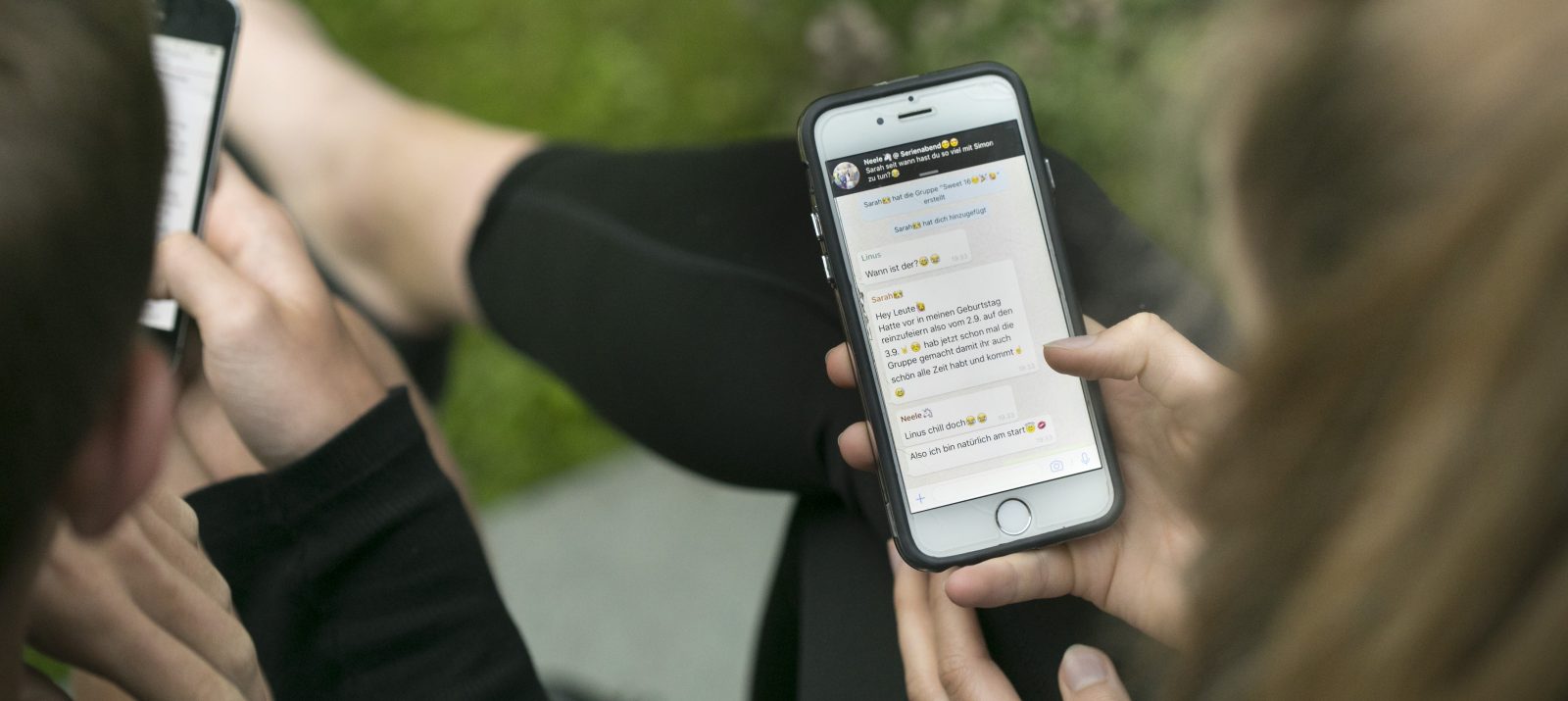
When you hear young people talking to each other or if you happen to see a chat of them, you might think our children are unlearning how to speak and write properly. We also use colloquial language when we communicate with others on social networks or in Messenger. On the Internet, people don’t always pay attention to upper and lower case, “something” is quickly shortened to “what” and emojis are used instead of words. A typical chat between teenagers might look like this:

Image: JFF
In the past, people could only talk to each other face to face. If that was not possible, they wrote letters to each other. At some point, inventions like the telephone led to people being able to talk to each other in real time without having to be in the same place. The way we talk in a conversation is different from the way we talk in written language. Although we do not always use the correct tense or sentence order in oral language, we do not write worse as a result. Because we can distinguish well between oral language and written language.
Chats and social media have changed our communication and language yet again. Instead of talking, we can now write to each other in real time. For example, we can see if the other person is reading the message, is about to reply, or is waiting for our reply. As a result, we keep our messages shorter, write faster, and have less time to think about our words. Online communication mixes elements of written language and oral language.
Depending on the situation, we use a certain form of language. In an email to a teacher or company, we use different wording than in a message to a friend or brother. We adapt our language quite automatically. And in the same way, children learn to write differently in a school essay or a letter of application than they do when chatting.
Don’t be concerned that communicating through Messenger will have a bad effect on your child’s language. Pay more attention to how your child speaks in different situations and provide access to different formats in which language plays a role – whether books, magazines, reports, series, podcasts and, of course, personal interaction with other people. Because every child acquires language primarily through his or her entire language environment, i.e. also through his or her parents, acquaintances, friends, teachers, etc. Be a good role model when it comes to media and read, write or talk without the cell phone. Common media rules for the home can be helpful.